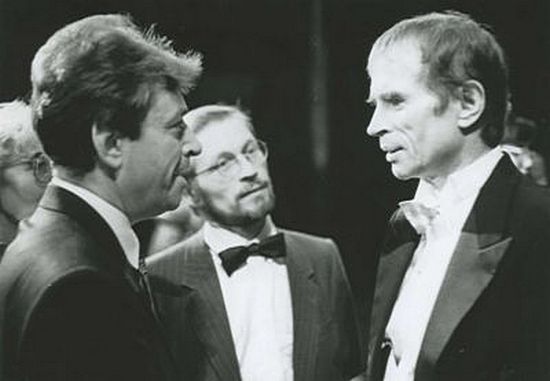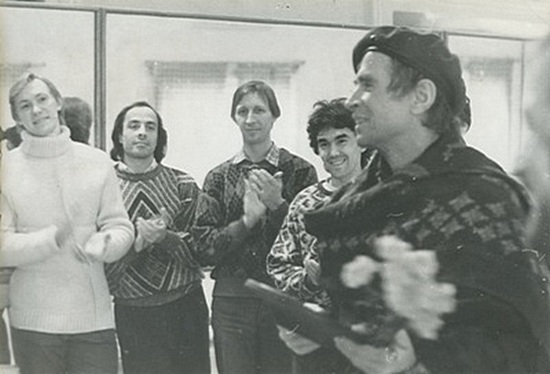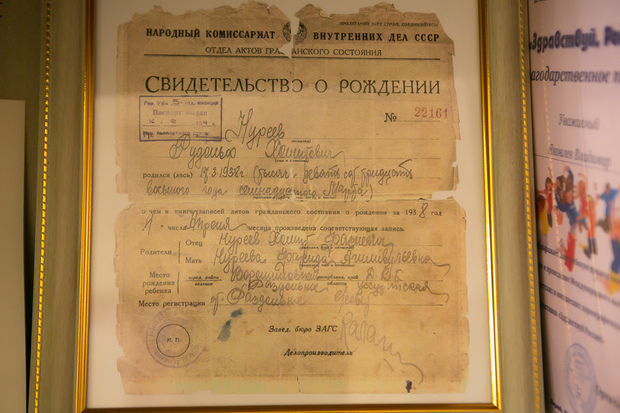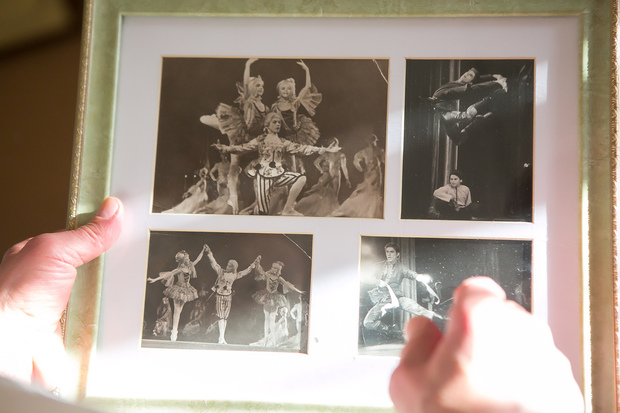Rudolf Nuriev: ''flying Tatar'' in his mother's homeland
Most famous and unclear ballet soloist of the world Rudolf Nuriev's birthday was on 17 March. It is not a jubilee, the anniversary is next year. These days 25 years ago, Nuriev came to work in Kazan on the invitation of the Tatar State Academic Opera and Ballet Theatre named after M. Jalil director Raufal Mukhametzyanov who squared a circle. Realnoe Vremya tells the details.
''Kazan is my mother's homeland''
The idea to invite Nuriev to Kazan was in the air in the Kazan Opera Theatre as early as the late 80s. Rudolf Nuriev managed to come to the USSR during this period when Perestroika was taking place and there was a more loyal attitude to many ''betrayers of the homeland'' who remained in the West.
First of all, he flew to Ufa to see his mother who lived in the family of one of her daughters. He saw his mother, but she already was in a bad state and did not recognise her son. Nuriev wanted to visit the Ufa theatre, the theatre of his childhood. But it was a day off, and the security did not let him enter.
When he stayed in Paris during a tour of the Mariinsky Theatre, which was called Kirov Theatre, his relatives always called him and persuaded to return. ''They found me everywhere. I understood that KGB organised all these calls. They expanded their octopus tentacles everywhere,'' Nuriev recalled in Kazan.
Another goal of the visit to the USSR in 1989 was a performance on the stage of the Kirov Theatre. Rudolf's classmate in Vaganov College Oleg Vinogradov who headed the ballet company of this theatre at that moment was the initiator of this invitation. La Sylphide was chosen obviously because the man's role was not very difficult in this ballet. Nuriev's health already failed at that time. One of the prima donnas of the Kirov Theatre, ethnic Tatar woman Zhanna Ayupova was his partner.

It was decided to go to Kazan for La Sylphide and try to persuade Nuriev to come to the capital of Tatarstan. Head ballet master of the Jalil Tatar State Academic Opera and Ballet Theatre Vladimir Yakovlev, who also graduated from the Vaganov College, and director of the theatre Raufal Mukhametzyanov managed to talk to Nuriev after the play. Nuriev's lasting partner and friend and teacher in the Yakovlev College Ninel Kurgapkina help them to meet.
Nuriev doubted a bit but then agreed and noted that Kazan was his mother's homeland. Unfortunately, he could not come then because the trip failed due to passport and visa problems several hours before take-off.
''This orchestra is my test area''
Raufal Mukhametzyanov was insistent, and Nuriev anyway came to Kazan and did it twice. The first time was in March 1992. Nuriev did not dance any more. He found a new work for himself – he started to work as conductor. Nuriev replied that Herbert von Karajan had given him this advice. ''What should I do after I left the stage? To plant radish?'' It sounded a bit offensive.
When he was asked whether he did not have a desire to step onto the stage from the orchestra pit when he conducted, he just shook his head. It was clear he gave up ballet. In Kazan, on Mukhametzyanov's offer, Nuriev was to conduct The Nutcracker at an unknown classic ballet festival. Moreover, Mukhametzyanov talked to the philharmonic orchestra who owned the symphony orchestra at that time. Nuriev was to conduct Tchaikovsky's Romeo and Juliette.

Nuried developed his conducting mastery. In Kazan, he was given Bulgarian conductor Vladimir Kiradzhiev as his assistant who cooperated with the Kazan Opera Theatre at that time. It is impossible to say they got along with. Nuriev often had emotional reactions to Kiradzhiev's innocent advice.
In answer to the question why he decided to work with Kazan orchestras, Rudolf said they were his test areas. The spirit of a commander, while it is said in the West that his family traced back to Genghis Khan, was strong in him. In general, Nuriev's will power was amazing. He came to Kazan unhealthy but rehearsed full steam.
''Behave like a citizen of Roma''
March was full of rehearsals only. The philharmonic orchestra did not bother taking care for the great dancer (according to some sources, even the payment for the performance with the symphony orchestra was given to him in the opera theatre), so the theatre decided to be responsible for everything. Deputy director Yury Larionov often supervised Nuriev.
Nuriev lived in the former Youth Centre because in the early 90s Kazan had problems with hotels. The room was not bad, but the lift did not work. Nuriev's old injuries made themselves known, and Larionov found a good masseur for him. After rehearsal, they often had a lunch together in Koltso, in Nowruz restaurant. Nuriev preferred fish, could afford himself a glass of red wine. Having completed the rehearsals, he flew back but was to return in May.
He came to Kazan soon after May days off. This time the theatre managed to accommodate him in the cottage of the Cabinet of Ministers near the Gorky Park. It was chilly there, so Larionov brought a heater. May was cold and rainy. Nuriev was cold and used a poncho to wrap up, wore a hat. There were many rehearsals, Rudolf's relatives – his cousin and grandson – were present there.

Nuriev waited for a flow of journalists. Unfortunately, they did not come. He gave an interview to ballet critic Vladimir Gorshkov and correspondent of Izvestia Tatarstana newspaper. While in the West his popularity ran high, and crowds of journalists besieged him.
Nuriev gave interviews with a desire, answered in detail. He told he was a global citizen and was glad to finally be in his mother's homeland. When they asked whether he felt nostalgia, he replied figuratively: ''If you live in Roma, behave like a citizen of Roma. It is the best remedy for nostalgia.''
Both the concert with the symphony orchestra and play were to a full house. The theatre invited ballet dancer Nadezhda Pavlova to the festival during many years. She did not agree. Having known that Nuriev would be a conductor, having seen the high level of the festival, she allowed to give it her name.
Nuriev was making plans – he was going to come to Kazan next year and stage La Bayadère by Minkus. He staged it in Palais Garnier in autumn 1992, and he appeared on the stage to bow in a wheelchair. It was Rudolf Nuriev's last appearance in public. He passed away on 6 January 1993. The ballet festival has been bearing his name since May 1993.

In a year, the world will celebrate ''flying Tatar'' Rudolf Nuriev's 80 th birthday who was not afraid to perform his famous ''jump to freedom'' having just 60 francs in his pocket. ''Our Tatar blood is different, it runs faster than that of the others,'' Rudolf liked to say. Discussions whether Kazan needs a monument to the famous artist have been taking place for a long time. Though the answer is on the surface, everything is just on paper.